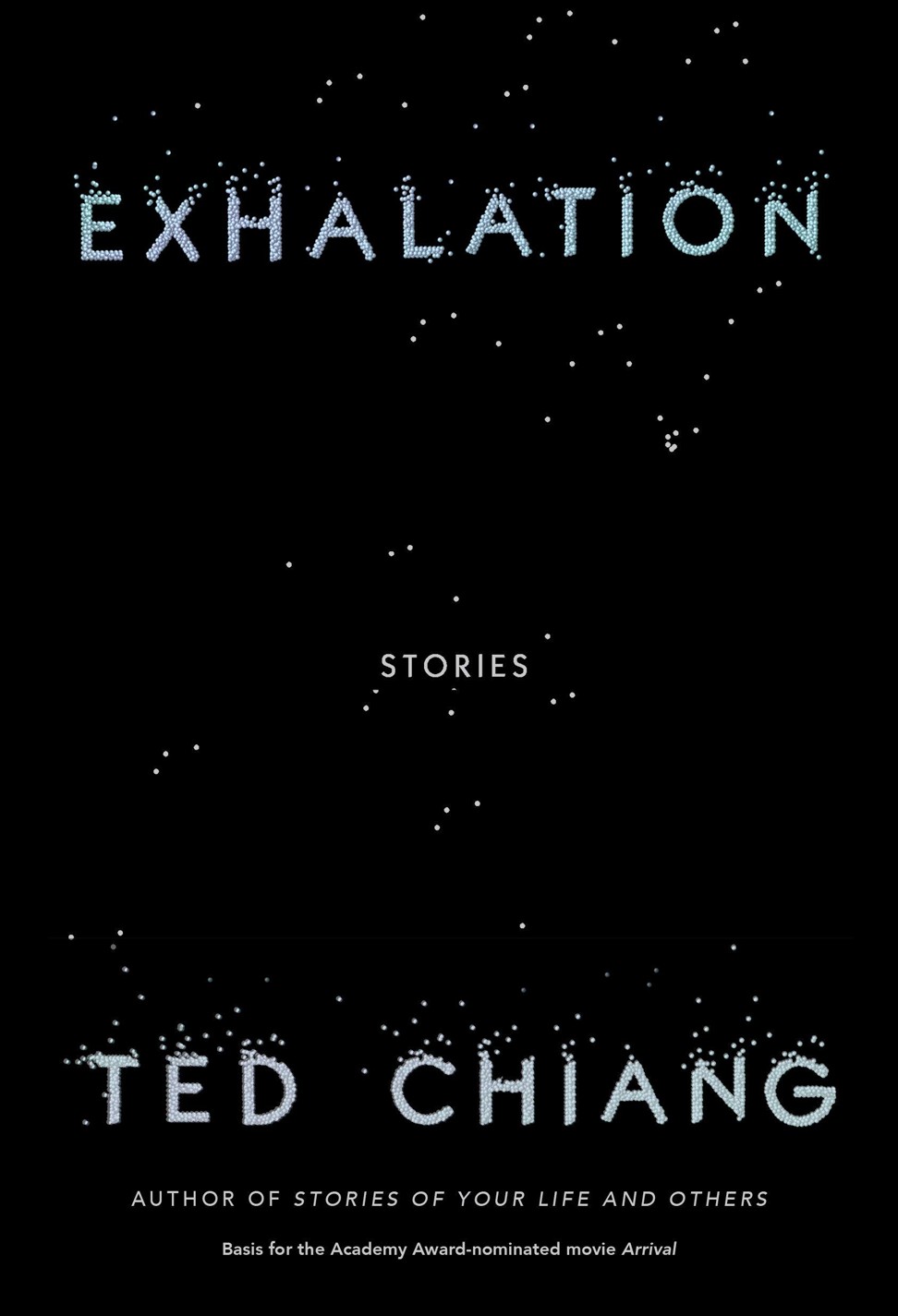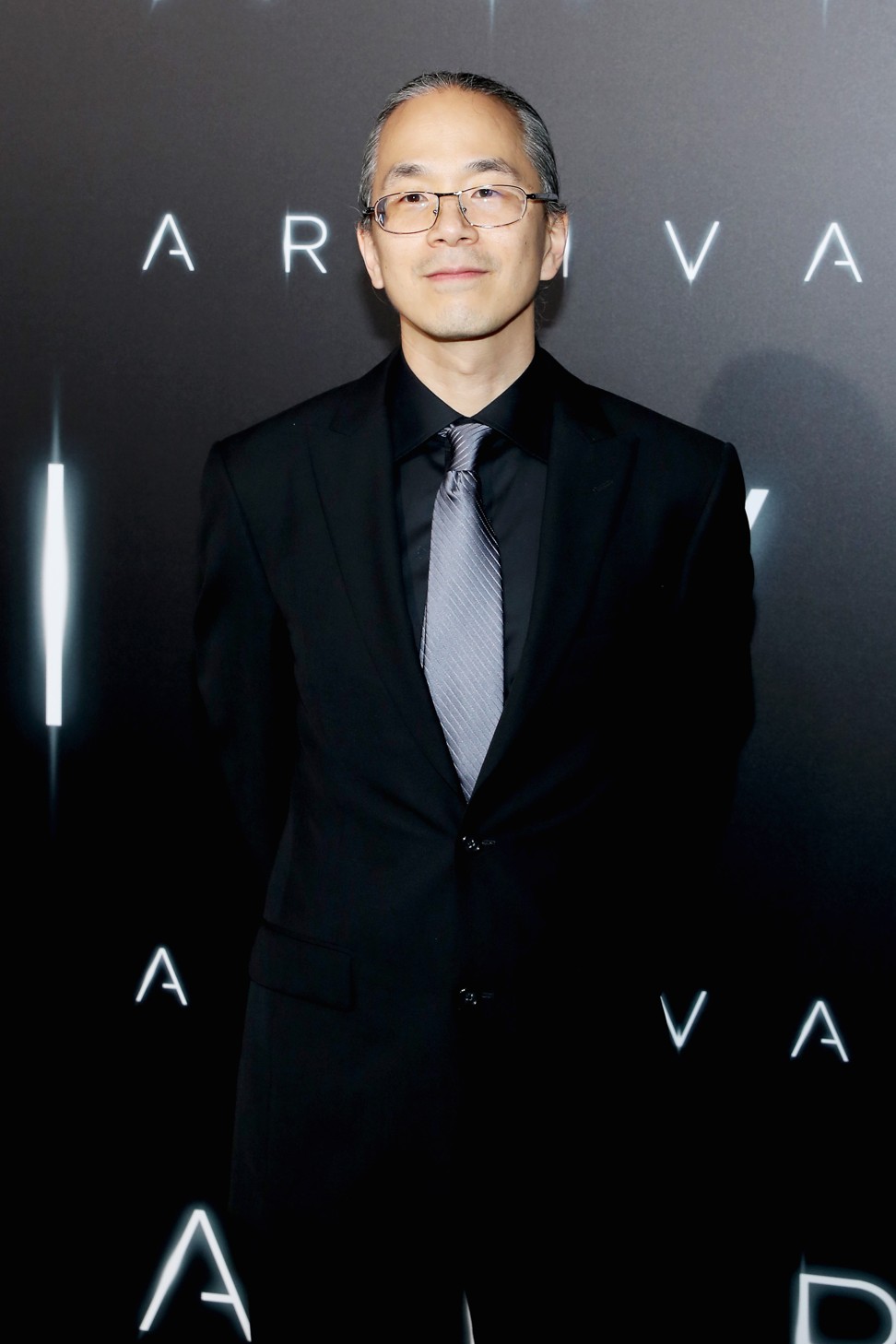
Review | Exhalation by Ted Chiang: new collection of sci-fi short stories explores human relationships
- Nine tales include little masterpieces and a couple that don’t quite hit the mark
- Chiang’s earlier work, ‘Story of Your Life’, was the basis of hit movie Arrival
Exhalation
by Ted Chiang
Pan MacMillan
4/5 stars
Arrival, Denis Villeneuve’s 2016 science-fiction masterpiece, was one of those rarest of films: an effortless critical and commercial smash, which earned more than US$200 million at the box office and eight Oscar nominations.
“Story of Your Life” was a highlight of Chiang’s debut collection, Stories of Your Life, published in 2002 by niche sci-fi imprint Tor Books. Reviewing the book in The Guardian newspaper, author China Miéville broke a world record for using “rationalism”, “human” and “emotion” in an attempt to pin Chiang down: “In Chiang’s universe, humanism is inextricable from rationalism. Far from being counterposed as ‘cold’ to emotion’s ‘warmth’, it is the rationalism of the characters – and the writer – that makes them emotional and human.”

This is longhand for: don’t let the clockwork precision of Chiang’s cerebral plotting fool you. He may seem like a cross between high-minded pranksters Jorge Luis Borges and Italo Calvino, but his elegant, intellectual structures envelop deeply moving meditations on war, religion, death, technology, love and loss – of both life and faith.
Take “Story of Your Life” itself, whose ingenious temporal structure ran metaphysical rings around ideas of conventional linear time by featuring an alien language that ran metaphysical rings around conventional linear time. Chiang transformed the base metals of the summer blockbuster – extraterrestrials arrive on Earth, but in war or peace? – into dizzying gold. How many other stories boast a female linguist (Louise Banks) who saves the world, as China and America prepare for the apocalypse, through brain power and self-sacrifice?
Nine summer reads worth their weight in baggage allowance
As I read the nine stories that comprise Exhalation, Chiang’s long-awaited second collection, which has been 17 years in the making, my mind kept returning to a passage in “Story of Your Life”. A colonel in the United States Army plays Banks a recording of what she assumes is the alien language, and asks if she can translate it. No, she replies promptly: “The only way to learn an unknown language is to interact with a native speaker, and by that I mean asking questions, holding a conversation, that sort of thing.”
What Banks is quietly but firmly asserting here is Chiang at his Chiangiest: that information doesn’t exist in a vacuum. Data, facts, ideas, events, history – you name it – everything requires human, or extraterrestrial, relationships to attain any meaning.
Almost every story in Exhalation reinforces this desire for contact, through talk, debate, listening and, above all, story. Exhalation is full of narratives told self-consciously as narratives – not as metafiction for metafiction’s sake, but to emphasise the basic human need to communicate.
Chiang sets out his stall with “The Merchant and the Alchemist’s Gate”, which opens the book. An homage to the Arabian Nights, these tales within tales about mystical time-travelling portals in Iraq and Egypt are necessarily dramatic. They are related by one human being to another with an express purpose: not merely to entertain, amaze or provide prophecy (“I would be honoured to relate everything I know of the future”) but to impart wisdom.
Ted Chiang, the science fiction genius behind Arrival
While the sheer verve of Chiang’s time-travelling mechanics is immensely enjoyable, the deeper morals of the action are hard won and painful. Our narrator’s hopes that he will reverse the central tragedy of his past by crossing the portal are dashed by fate, whose heart-rending lesson leads to unexpected enlightenment.
In this, the opener is a companion piece both to “Story of Your Life” and the intriguingly titled “The Truth of Fact, the Truth of Feeling”. The latter’s high-concept McGuffin is Remem, a search engine that enables people to browse their “lifelogs”, instantly accessing any given moment of their lives, captured on video.
Chiang explores the possibilities of his conceit as deftly as Charlie Kaufman exploited the memory-wiping service in Eternal Sunshine of the Spotless Mind (2004). Having begun as a way to remember where you put your keys, Remem progresses as the means to settle long-out-of-date differences of opinion, and crescendos when our narrator-journalist ponders the philosophical implications of “perfect memory”. If you can access every second of your past, how can you exist in the present? Equally, if we can no longer forget, how can we hope to discard what is trivial, boring and heart-rending?
Injecting human urgency into these abstract meditations is a parallel story about an African tribe’s encounters with British missionaries. In it, the futuristic technology remoulding consciousness is not Remem but writing. For in addition to spreading the word of god (and empire), the preacher spreads the written word. When an academic transcribes Kokwa, the storyteller, performing one of its foundational myths, the act both preserves an oral culture that might otherwise be lost and fixes a story whose very power is inseparable from its instability.

The storyteller is bemused and then contemptuous when a fellow tribesman, who has learned to read and write, complains that this year’s version was not the same as last year’s. And he has the transcript to prove it: “It’s the same story, but you changed the way you tell it.” Kokwa laughs in his face: “Is this what you think is important, now that you’ve learned the art of writing?”
The sharp critique of colonisation through language complicates one’s justifiable, if Luddite, concerns about Remem, which might as well be called Facebook, email or the internet. When the narrator-journalist experiments with Remem himself, he rewinds to the most painful moment of his life – an argument with his daughter – which he believes, smugly as it turns out, made him a better man. Without wishing to spoil the twist, the interaction is not as he remembered, which reveals more about human nature than evil technology: “The point [of Remem] is not to prove you were right; the point is to admit you were wrong.”
Best climate change fiction books, but why aren’t there more?
This pregnant conclusion touches on everything from fake news to Donald Trump’s arrogant self-exonerations. But it also returns us to Chiang’s faith in fiction as an art form: “I have told a story in order to make a case for the truth. I recognise the contradiction here.”
Not all the works included in Exhalation are masterpieces. “Dacey’s Patent Automatic Nanny”, a cyberpunk-ish artificial-intelligence fable, feels more like an exercise in literary pastiche than a concerted attempt to ponder how technology shapes developing human consciousness. The equally concise “What’s Expected of Us” is a clever and unsettling parable of free will, but pales in comparison to the exuberant “The Merchant and the Alchemist’s Gate”.
Exhalation is what we do when we sigh, yawn, laugh and ultimately when we expire [...] This single word encapsulates an allegory about mortality, the environment and the very meaning of life
These are the exceptions to the amazingly high standard, which is never higher than in the title story, “Exhalation”. This one word does more work than many so-called literary novels. Our narrator is a humanoid whose race relies on artificial lungs, which need to be regularly refilled and replaced, for their admittedly extended existence, reminding us that breath is the very essence of life. And yet, Chiang’s meticulousness gives us pause.
Exhalation is what we do when we sigh, yawn, laugh and ultimately when we expire. Our final breath will be an exhalation, which is lethal in its turn, laden with carbon dioxide. This single word encapsulates an allegory about mortality, the environment and the very meaning of life.
The bestselling authors sharing stories at Hong Kong Book Fair
“Exhalation” is also Chiang’s richest meditation on his chosen art form. Our humanoid hero is shocked to discover, through a surreal act of auto brain surgery, that his world is dying, thanks to a gradual reduction of the air pressure needed to power the iron lungs. His first clue was the phenomenon of town criers across the planet failing to finish an annual poetry reading in the allotted time because their breath was running out.
In one graceful sweep, “Exhalation” compares the life-giving flow of air to the ways stories move across time and space. The dazzling finale flows from a warning to a poignant swan song to a hymn in praise of stories themselves. Unlike the singer, his song will survive, transcending time, place and death. The final breath of “Exhalation” is worth quoting in full: “Though I am long dead as you read this, explorer, I offer to you a valediction. Contemplate the marvel that is existence, and rejoice that you are able to do so. I feel I have the right to tell you this because, as I am inscribing these words, I am doing the same.”

